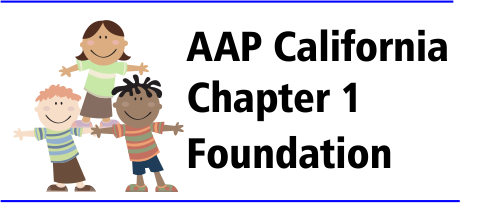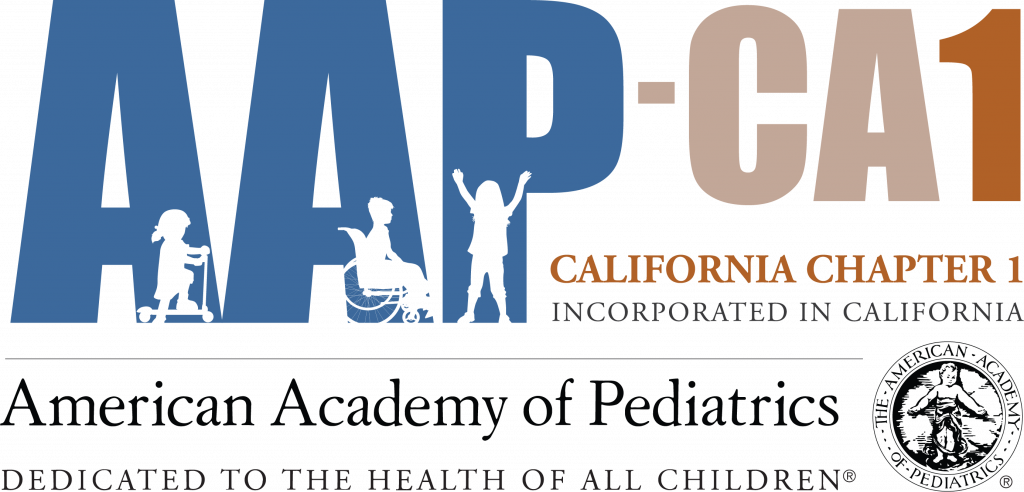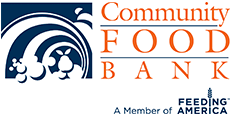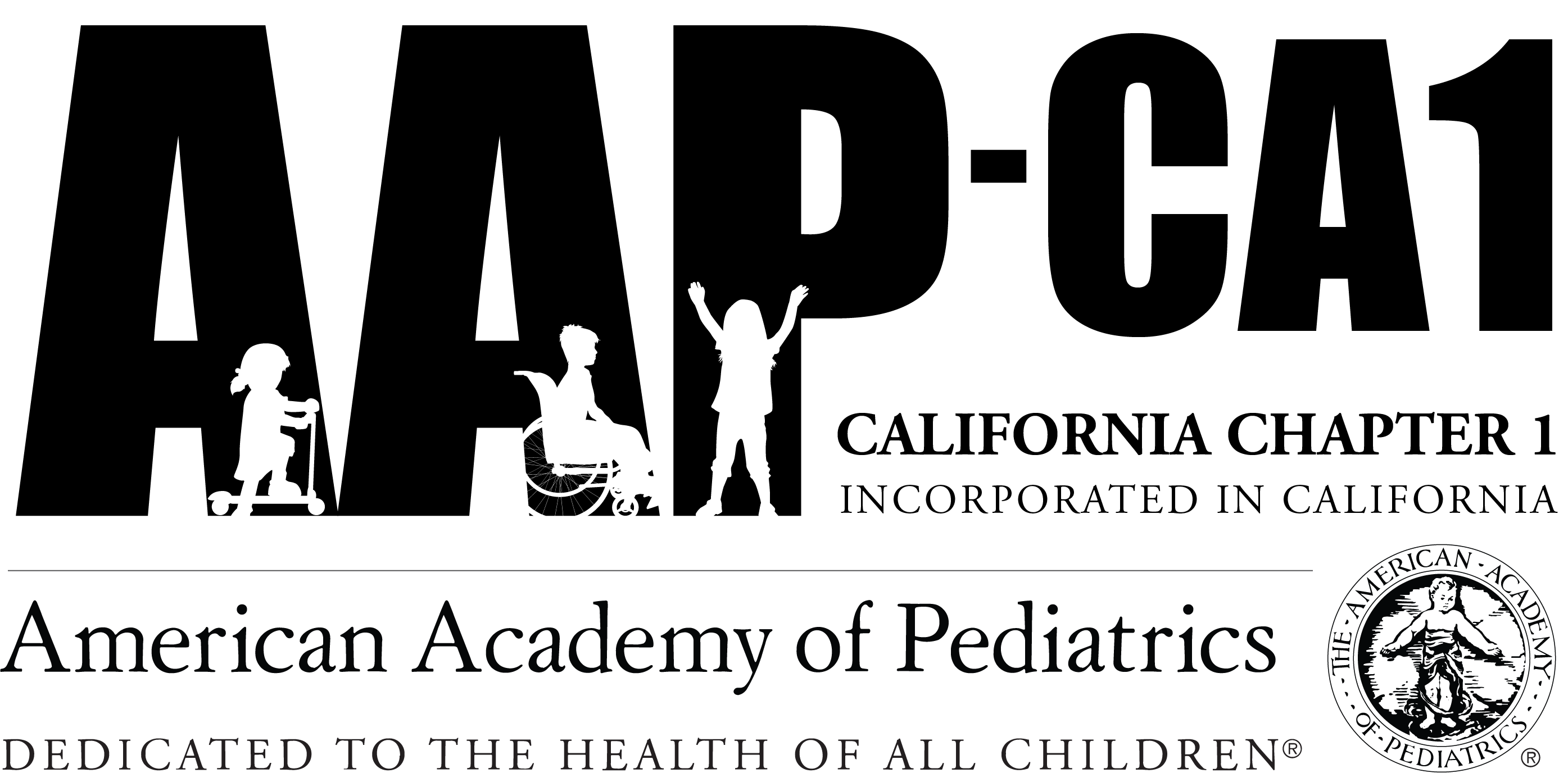
.
Mission Statement: Improve the health & wellness of our children by mobilizing people and resources to achieve immediate and lasting change in their lives.
The American Academy of Pediatrics California Chapter 1 Foundation goes beyond the physician’s office to partner with local community organizations to provide support to parents and children in their communities throughout Northern California. The Foundation is a 501(c)(3) organization whose purpose is to foster and improve health, well-being and safety of children in Northern California.
The Foundation is primarily focused on three areas:
1.) Provide support to families in crisis by connecting parents or care givers with community resources designed to improve care giving and coping skills, reduce stress, with the goal of keeping the family together.
2.) Provide support to families facing homelessness by connecting families with community shelters, day time hospitality centers, and other organizations that provide support to those in need.
3.) Provide support to organizations that alleviate food insecurity by partnering with local food banks, and other non-profits that distribute food to those that are hungry.
Email: Info@AAPCA1.org
Telephone: (916) 274-4173
Federal Tax ID: 46-4458286
Donate today by using the QR code or button below!

Donate
About:

The Foundation (501 C 3), with local community leadership and involvement, will present information concerning child welfare, health, safety and emotional well-being at local meetings at schools, churches, conferences and other public gathering places where interactive discussions can occur. Encouraging such discussions will fully answer questions, dispel fears, and increase acceptance of vital health care information concerning children in diverse communities within the Foundation’s catchment area. Where appropriate, volunteer pediatricians will participate. The Foundation will not engage in any lobbying of any kind.
Because the Foundation is taking child welfare, child health, child safety and child emotional well-being information beyond the physician’s office, directly to children, parents and local communities within the Foundation’s catchment area, the Foundation has many collaborative allies and expects to receive funding from grants and charitable donations. The Foundation will recast qualified programs presented to physicians and health care professionals into public presentations made directly to the community. This will amplify the effect of these programs. Local community leadership will help to promote these programs and provide input to make them more effective in their communities.
Our Story:
The Foundation will develop partnerships with like-minded nonprofit and charitable organizations to offer education on important health issues for children in Northern California. We will offer grants to organizations who are currently working on worthy child related community projects to ensure that their work is completed successfully. The Foundation will serve as a resource for the community, public health departments, families and children in Northern California to improve the lives of infants, children and youth in our catchment area.

Donate
Board:
- Nelson Branco, MD, FAAP
- John Takayama, MD, FAAP
- Christine Ma, MD, FAAP
Programs:
- Childhood Poverty:
 Have you seen this little girl in your community? She is the one who is different. She often comes to school late or not at all, she is quiet and keeps to herself more than the other children. She wears the same clothes several times a week and puts extra food bits in her pocket from the school lunch program. After school she goes to her spot and sits down with her sign. She should be home doing her homework or out playing with friends, but she spends her time trying to make ends meet. Her parents do not have enough money to feed the family.It’s difficult to believe that in a country with such wealth there are still many people who go to bed hungry each night. What can you really do about this? Your donation will make a difference in someone’s life. Your donation will go directly into funding the Reverse Food Truck project in the Sacramento Valley area. It’s a simple concept: we visit farmer’s markets and restaurants to pick up fresh food each day and deliver it to the various food banks in our community. We encourage people to buy fresh fruits or vegetables at these markets and give them to our project truck driver to feed children and families that very day. It’s a person-to-person donation of caring that nourishes the giver and the receiver. If you would like to help.
Have you seen this little girl in your community? She is the one who is different. She often comes to school late or not at all, she is quiet and keeps to herself more than the other children. She wears the same clothes several times a week and puts extra food bits in her pocket from the school lunch program. After school she goes to her spot and sits down with her sign. She should be home doing her homework or out playing with friends, but she spends her time trying to make ends meet. Her parents do not have enough money to feed the family.It’s difficult to believe that in a country with such wealth there are still many people who go to bed hungry each night. What can you really do about this? Your donation will make a difference in someone’s life. Your donation will go directly into funding the Reverse Food Truck project in the Sacramento Valley area. It’s a simple concept: we visit farmer’s markets and restaurants to pick up fresh food each day and deliver it to the various food banks in our community. We encourage people to buy fresh fruits or vegetables at these markets and give them to our project truck driver to feed children and families that very day. It’s a person-to-person donation of caring that nourishes the giver and the receiver. If you would like to help.
-
One Degree Partnership Project Outline:
-
Overview:
-
California Chapter 1 American Academy of Pediatrics (AAP) is excited to partner with One Degree, an SF-based tech non-profit, to support a web platform that connects low-income families with the community resources that are critical to attaining and maintaining physical, mental and social health.
Together, we hope to bridge the gap between the healthcare and social service sector, as each endeavors to address the social needs that profoundly impact the health of children, families, and communities.
-
-
Background on One Degree:
-
One Degree is a cloud-based, social service referral tool. It has the capacity and institutional memory to track client social needs and a secure portal for providers to interact with clients and manage their needs online. It collects macro-level data and offers an opportunity for personalized user engagement. This allows providers to map resource utilization and deploy targeted, individualized interventions. One Degree is free and currently available for use in San Francisco and Alameda Counties.
-
-
Background on the AAP:
-
In 2013, the AAP added “poverty and child health” to the national Agenda for Children, urging pediatricians to “address poverty within their practices and engage parents in the effort.” Pursuant to this charge, Chapter 1 endeavors to connect patients to resources and empower providers to meet social needs.
-
-
Mission:
-
To leverage technology to break the cycle of poverty for children and families, thereby improving community health.
-
-
Goals and Activities:
-
To optimize the design and functionality of One Degree’s website to meet the needs of its users including parents and community members and healthcare and social service professionals
-
Gather and incorporate input from stakeholders via targeted community outreach; incentivized community advisor panel; multi-site clinical pilot; and partnerships with social service agencies
-
To examine the effectiveness of using One Degree in healthcare settings
-
Collect data from the multi-site clinical pilot in a Plan Do Study Act format of quality improvement and elicit anonymous feedback via the website reviewer function
-
To scale the project to meet the growing need for an integrated social safety net
-
Identify pediatrician and social service champions across the region, with specific interest in small, independent clinics, urban centers, and rural communities that may especially benefit from the tool.
-
-
-
Food Insecurity:
-
An estimated one of four California children goes to bed hungry every night because their families do not have enough money to buy food to last through the month, according to recent UCLA Health Policy Institute studies (1). A growing body of research about food insecurity (having too little food to prevent hunger) reinforces the need for better means of identifying and addressing the problem of childhood hunger (2,3,4,5,6) There are valid screening questionnaires, but they are useful only if used routinely by health professionals and others who work with children, so that families can be referred to food pantries, Cal Fresh, and other needed services.
Child health advocate pediatricians from the Northern California Chapter of the American Academy of Pediatrics are partnering with Ms. Karen Ande, an award-winning San Francisco documentary photographer, to increase awareness of the problem of hunger among children in our community. Ms. Ande is volunteering her services for the project, “Who’s Hungry?…You Can’t Tell by Looking.” Of the first 12 food security screening questionnaires given to parents by pediatric advocates, 6 were positive for food insecurity (Parents completing the questionnaires and consenting to having their child photographed by Ms. Ande were assured anonymity).
We invite you to study the photographs, made at street fairs and local neighborhoods in San Francisco, and to ask yourself which children appear hungry… You really can’t tell by looking! If you are a healthcare professional, the message is to routinely screen for food insecurity and to become familiar with resource networks and referral systems so no child will have to go to bed hungry.
-
- Foster Care Coordination:

- The Foundation will work with other community organizations to improve the communication between the social worker, CASA volunteers, foster parents and the medical/mental health community to provide a more complete medical history for each child in foster care. These documents will be provided to foster parents and medical care professionals to assist them in addressing the needs of the child while in foster care.
- Increase Vaccines:
- Vaccine Promotion Project
- Program to increase vaccine rates particularly Human Papillomavirus (HPV), Pertussis, Measles, Mumps and Rubella (MMR)
- Vaccine Promotion Project
- Reverse Food:
- Featured Project: “Reverse Food Truck” to address food insecurity and nutritional needs for families & individuals in the Sacramento Region
-

-
-
-
-
Thanks to a story on NPR we were introduced to the idea of a “reverse” food truck. The concept is a food truck that accepts donations instead of selling food. The truck will bridge the produce gap and collect fresh food at farmer’s markets and other events. We want to bring awareness of the problem of hunger and lack of access to healthy food while collecting the needed produce and other food items. We want to “produce” change. In the short term, the truck will collect food to meet this gap in what our food banks need and what they have. In the long run, we hope to use the truck to increase awareness, educate our community on health, nutrition, the effects of poverty, and maybe even use the truck for food distribution or urban harvesting. Every dollar of your donation to the American Academy of Pediatrics, California Chapter 1 Foundation will be used to support this project! Initially funds will go to getting the service up and running (e.g., buying, outfitting and maintaining the truck, and funding insurance and gas). Once established, the donated funds will be used to support ongoing efforts, including promoting the availability of food, buying additional food, and expanding to help as many people as possible.
Imagine tasting a blueberry for the first time. Most people probably can’t because we tasted them before our memories started. But what if the first time you tasted a blueberry you were in elementary school and the blueberries were brought in by a health educator to expose you to the foods that were difficult for your family to afford? 33% of the population in Sacramento County lives at or below 185% of the federal poverty level. Unfortunately, many of these individuals live in communities with poor access to fresh affordable produce. Eileen Thomas, Executive Director at River City Food bank, estimates that food banks in Sacramento County could use an additional 15,000 lbs. of food each month to meet the very basic needs of our food insecure community members. Most people are aware of the concept of a food truck.
-
-
-
6. Resources:
-
-
- Links:
- California Chapter 1, American Academy of Pediatrics

- AAP California Chapter 1 Mission: “To advocate for the physical, emotional and social well being of children and to raise consciousness for the importance of healthy communities so that each child can reach his or her full potential.”
- Top Giving Foundations: California
- The preceding list of top giving foundations in CA is derived from The Grantsmanship Center’s funding databases. All of the foundations listed have been screened to ensure that they have a staff, issue request for proposals, or otherwise indicate an interest in receiving proposals.
- California Chapter 1, American Academy of Pediatrics
- Food Banks:

- Links:
-
-
-
-
- List of Food Banks within the Northern California:
- Alameda County Community Food Bank
- Amador/Tuolumne Community Action Agency (A-TCAA) Food Bank
- California Emergency Foodlink
- Community Action Agency of Butte County
- Community Assistance Network
- Community Food Bank Fresno
- Community Food Bank of San Benito County
- Community Resources Council
- Emergency Food Bank of Greater Stockton
- Food Bank Coalition of San Luis Obispo
- Food Bank for Monterey County
- Food Bank of Contra Costa and Solano
- Food Bank of El Dorado County
- Food Bank of Nevada County
- Food Bank of Yolo County
- Food for People, Inc.
- Interfaith Food Bank
- Lake County Community Action Agency
- Madera County Food Bank
- Marin Community Food Bank
- Mendocino Food and Nutrition Program
- Merced County Food Bank
- Napa County Food Bank
- Sacramento Food Bank
- San Francisco Food Bank
- Second Harvest Food Bank of San Joaquin and Stanislaus Counties
- Second Harvest Food Bank of Santa Clara/San Mateo Counties
- Second Harvest Food Bank Santa Cruz County
- Second Harvest Food Bank serving Santa Clara & San Mateo Counties
- Shasta Senior Nutrition Programs
- The Redwood Empire Food Bank
- The Resource Connection Food Bank
- Ukiah Community Food Bank
- List of Food Banks within the Northern California:
-
-
Videos:
- Food Insecurity
- Exhibit of photos to highlight the problem of food insecurity and support by a community of caring individuals.
- Reverse Food Truck
- Innovative program to get food to the needy by picking it up from providers to speed up distribution to the hungry.
